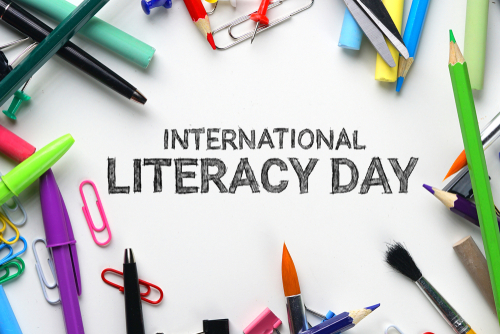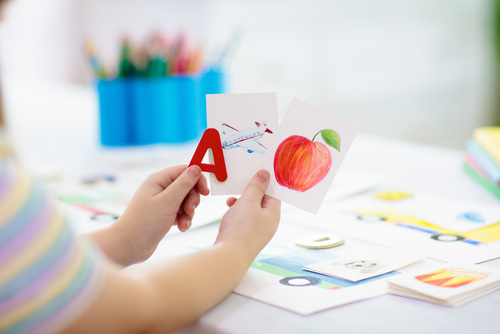Literacy has a profound significance for children’s lives. Beyond just reading and writing, literacy is the key to unlock a world of opportunities, imagination, and lifelong learning.
Each year on 8 September, International Literacy Day is celebrated across the world, observing the importance of literacy for all. In the early childhood education sector, this is the perfect time to reflect on the vital nature of literacy skills for children and our role in fostering it.

Why literacy matters in everyday life
Literacy is the foundation for building a child’s entire educational journey. It plays the role of gateway for children’s to access knowledge, express thoughts and feelings, and communicate effectively. Literacy skills are vital every single day of life — here’s just a few ways it has an impact:
Communication: Literacy is the cornerstone of effective communication. Whether it’s reading a storybook, writing a note, or simply understanding instructions, literacy skills are essential giving and receiving communications of all kinds.
Critical thinking: Literacy nurtures critical thinking skills, encouraging children to analyse information, question the world around them, and form their own opinions.
Imagination and creativity: Reading opens the doors to imagination. It transports children to different worlds, introduces them to fascinating characters, and inspires creativity.
Empowerment: Literacy empowers children to advocate for themselves and their communities. It equips them with the tools to access information and resources independently.

Tips to support literacy skills in early childhood education
There’s no such thing as too early to start a child’s literacy journey. Literacy development begins at birth. Reading to children, including babies and toddlers, introduces them to the sounds and rhythms of language, making it easier for them to expand and develop their literacy over time.
To foster a strong focus on literacy skills in your early childhood education setting, try incorporating these ideas:
Create a dedicated reading environment: Make books accessible and enticing. Create a cosy reading nook with comfortable cushions and good lighting area. Let children explore and choose books to read that interest them.
Interactive reading: Engage children in the reading process. Ask questions, encourage them to predict what happens next, and discuss the story’s themes. This not only enhances comprehension but also makes reading enjoyable.
Writing practice: Provide ample opportunities for children to practice writing. Start with basic shapes and progress to letters and words. Fun activities like finger painting, drawing, and tracing can make writing an enjoyable experience. Look for proper pencil grip and guide children from the get-go.
Games and activities: Incorporate literacy into playtime. A game like Alphabet Bingo is a fun way to reinforce letter recognition. Boggle or rhyming word games can support phonics and expand vocabulary. Storytelling games can spark creativity and language development too.

Literacy skills: lifelong assets
International Literacy Day reminds us that literacy is not just an academic skill — it’s a lifelong asset.
By nurturing literacy skills in early childhood, we empower children to thrive academically, creatively, and socially. So, let’s celebrate the magic of words, the joy of reading, and the power of literacy on this special day.
Together, we can help children access world of possibilities through the gift of literacy.

